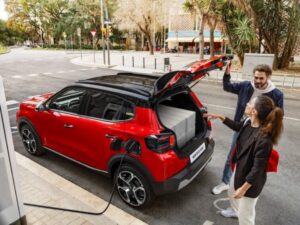EV battery health has shown ‘remarkable’ progress in the last decade, with mileage having ‘minimal’ impact on long-term degradation according to new research.
Battery health specialists Generational report that modern EV batteries now retain 10% more usable capacity at comparable mileage points than those from a decade ago.
Testing compared vehicles from 2016/17 with those from 2022/23. At 90,000 miles, older cars showed an average battery health of 75.87%, while 2023 vehicles maintained 86% – highlighting significant improvements in battery longevity.
Similar patterns appeared in lower-mileage vehicles. At 50,000 miles, 2023 EVs recorded more than 5% higher battery health than 2016/17 models. Vehicles from 2019/20 achieved almost 5% better results than 2016-2017 EVs at equivalent mileage.
These findings suggest recent technological advances have made batteries more resilient, with improved systems to manage and protect them from damage.
Oliver Phillpott, Generational’s CEO, emphasized the need for standardized battery health reporting to help buyers navigate the used EV market.
“The results of our EV battery health testing highlight the remarkable progress in battery technology over recent years, and just how much more value it adds than the mileage figure when looking to acquire a used EV. Understanding this evolution helps buyers make informed decisions based on their specific needs,” said Phillpott.
“As with combustion-engine vehicles, used EV customers want to be able to determine which vehicle will be the best for their needs; for some buyers, vehicles with moderately lower battery health may offer excellent value – they just need the right information to arrive at that conclusion. That’s what battery health certification provides, and what’s needed to create a healthy, sustainable market for used EVs.”
Polestar recently began issuing battery health certificates with all approved secondhand Polestar 2s. Auctioneer BCA provides similar health checks for EVs in their system. Despite these initiatives, the industry still lacks a unified reporting standard.
Battery longevity remains a common concern for potential EV buyers. However, Generational’s research supports findings from Geotab last year indicating modern EVs lose just 1.8% usable capacity annually – down from 2.3% in 2019.
A recent study at Stanford University suggests batteries might last even longer in real-world conditions than laboratory testing indicates.
The varied nature of everyday driving – including stop-start patterns, different acceleration rates, regenerative braking, and irregular charging cycles – could actually benefit battery health compared to the constant-rate charge/discharge cycles used in lab testing. The research suggests batteries may last up to 40% longer in real-world use than laboratory tests predict.





